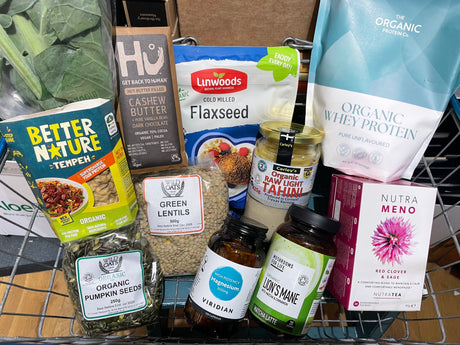Do you suffer bloating, brain fog or aching joints, or just not feel in good health? Maybe you want to lose weight, but can’t give up carbohydrates. The proteins in wheat, rye and barley, known as gluten, may be responsible for many of these symptoms (and possibly many more).
What is gluten?
Gluten is the name for a range of proteins called glutenins and gliadins. Gluten is found in grains, which were introduced into our diet about 10,000 years ago when we started to settle, cultivate land and farm. The grains available back then have changed considerably, and the gluten content of wheat is now dramatically higher. Hybridisation over the last 50 years has caused the gluten content of wheat to increase by about 50-fold.
How gluten affects the body
Gluten proteins are difficult to digest. In the stomach, we produce stomach acid and pepsin to start the process of breaking down the protein into smaller chains of amino acids, known as peptides. Our digestive enzymes act like scissors on these long chain structures. A protein is like a string of pearls that needs to be broken down into single pearls (or amino acids) for our body to absorb and use.
We cannot do this with gluten because it has an unusual composition and the sequences of the amino acids are not recognised by the “scissors” that break proteins down. For many people, the consequence of this indigestibility may not pose a problem.
How gluten can be harmful
At least 50 peptides have been identified that can be toxic to the body, depending on our genetic vulnerability. One such peptide resembles zonulin, a hormone found in the gut which is released when food has been digested. Zonulin tells the cells lining the gut to create space between them so nutrients can pass into the bloodstream. Unfortunately, this peptide can trigger the same process, widening the gap between gut cells and allowing unwanted peptides into the blood.
These “foreign invaders” are attacked by our immune system, causing inflammation. Our bodies make antibodies against these peptides, and some act like opiates in the brain, causing brain fog or stimulating appetite. These opiate-like peptides tend to make us crave carbohydrates, creating a vicious cycle.
In some people, antibodies created against gluten peptides resemble proteins in the body’s own cells. This can cause the immune system to attack healthy tissue, leading to autoimmune diseases such as Hashimoto’s thyroiditis.
Coeliac disease is an autoimmune disorder in which the body attacks the gut lining, preventing nutrient absorption. It affects roughly one in 100 people, often going undiagnosed for years. There are also many more people with non-coeliac gluten sensitivity, who may experience similar symptoms without the autoimmune component.
Will gluten free help with bloating?
A simple way to test yourself for gluten sensitivity is to remove gluten from the diet for at least four weeks. Wheat, barley, rye, spelt, kamut and most oats contain gluten (unless certified gluten-free). Gluten can also be hidden in processed foods - even something like seafood sticks can contain added gluten.
After four weeks, reintroduce gluten and note how you feel. If symptoms return, gluten may be worth avoiding long term. There are also laboratory tests, such as those from Cyrex, that can identify coeliac disease or gluten sensitivity.
While gluten is not the cause of every health concern, there is strong research suggesting that a gluten-free diet can improve health and wellbeing for many.
What grains can I eat?
If gluten is causing a problem, it’s best to avoid gluten-containing grains until the gut has healed and inflammation has reduced. Some people react to other grains like quinoa, amaranth, and even rice - which is common in many gluten-free flours and products.
What's cross reactivity?
Certain proteins from foods such as milk, eggs and soya can cause a similar immune response in susceptible people. Testing, food diaries, or elimination diets can help identify triggers.
Alternative foods
Thankfully, there are many gluten-free recipes online and plenty of delicious alternatives available - especially in health food shops.
At Wild Oats, we stock a wide selection of gluten-free products to suit a range of needs, from coeliac disease to gluten intolerance. Our certified gluten-free range includes The Great Cake Co. grab bags (packed in a dedicated GF-certified environment), Doves Farm flours, wrapped gluten-free breads, oat crackers and biscuits, gluten-free porridge oats, and other non-gluten grains.
Our deli fridge also offers sweet and savoury non-gluten options (suitable for those with non-coeliac gluten sensitivity), and we carry gluten-free natural remedy supplements. Whether you need everyday pantry staples or a treat, our knowledgeable team can help you find delicious, safe options to support your gluten-free lifestyle.
Find out more by browsing the website woats.co.uk, or visit us in-store.



